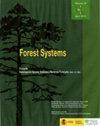埃塞俄比亚野生蘑菇的潜力:基于供应商和消费者偏好的分析
IF 0.7
4区 农林科学
Q3 FORESTRY
引用次数: 2
摘要
研究目的:探讨农村香菇生产者和城市超市消费者的消费偏好。这使我们能够获得关键信息,与当地社区一起制定可持续的管理和保护计划,并有助于评估野生蘑菇资源的潜在经济价值。研究领域:埃塞俄比亚阿姆哈拉和西达马地区州以及首都亚的斯亚贝巴的农村地区。材料和方法:采用D-0设计进行选择实验,以确定两个主要利益相关者的偏好:农村地区的蘑菇生产者和亚的斯亚贝巴超市的城市消费者。数据分析采用随机参数模型。对不同属性的支付意愿(需求方)和接受意愿(供给方)进行了计算。主要结果:如果农民的劳动得到长期合同的现金补偿,他们愿意作为关键参与者参与可持续发展项目;他们喜欢采蘑菇的地点离自己家不远,喜欢成群采蘑菇。如果他们花更多的时间从家走到森林,补偿应该增加。城市消费者希望购买和支付埃塞俄比亚野生蘑菇,并对蘑菇的可持续生产感兴趣。研究亮点:在这项研究中接受调查的农民和消费者认识到,重视蘑菇资源的潜力是保护蘑菇生长的森林的一种潜在方式。本文章由计算机程序翻译,如有差异,请以英文原文为准。
Wild mushroom potential in Ethiopia: An analysis based on supplier and consumer preferences
Aim of study: To elicit the preferences of the mushroom producers in rural areas and of the urban consumers in supermarkets. This allowed us to obtain key information to develop sustainable management and conservation plans in participation with local communities and to contribute assessing the potential economic value of wild mushroom resources.
Area of study: Rural areas in the Amhara and Sidama regional states of Ethiopia, and in the capital, Addis Ababa.
Material and methods: A choice experiment following a D-0 design was performed to determine the preferences of the two main stakeholders: mushroom producers in rural areas and urban consumers in Addis Ababa supermarkets. Data were analyzed using a random parameters model. Willingness to pay (demand side) and willingness to accept (supply side) were calculated for different attributes.
Main results: The farmers are willing to be involved as a key participant in sustainable programs if they are compensated for their work in cash by long contracts; they prefer that the collection site is not very far their homes and to collect mushrooms in groups. If more time is spent walking from their homes to the forest, the compensation should increase. Urban consumers want to buy and pay for Ethiopian wild mushrooms and are interested in the sustainable production of mushrooms.
Research highlights: The farmers and consumers surveyed in this study recognized the potential of valuing mushroom resources as a potential way of conserving the forests where the mushrooms grow.
求助全文
通过发布文献求助,成功后即可免费获取论文全文。
去求助
来源期刊

Forest Systems
FORESTRY-
CiteScore
1.40
自引率
14.30%
发文量
30
审稿时长
6-12 weeks
期刊介绍:
Forest Systems is an international peer-reviewed journal. The main aim of Forest Systems is to integrate multidisciplinary research with forest management in complex systems with different social and ecological background
 求助内容:
求助内容: 应助结果提醒方式:
应助结果提醒方式:


